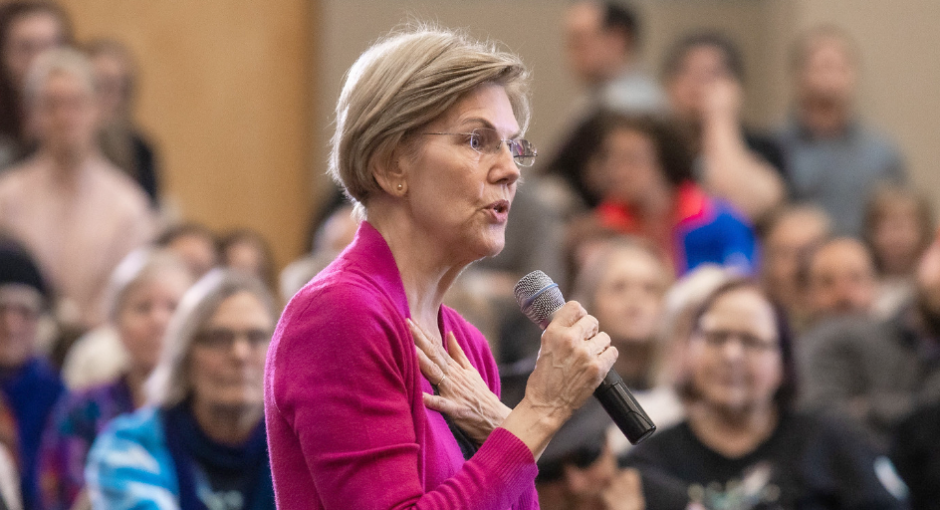Thirteen congressional Democrats—eight senators and five representatives—asked Pharmaceutical Research and Manufacturers of America (PhRMA) to respond by March 8 to questions about “rapid price hikes affecting the vast majority of popular brand name drugs.”
Sens. Elizabeth Warren (Mass.) and Amy Klobuchar (Minn.) and Reps. Katie Porter (Calif.) and Jan Schakowsky (Ill.) organized the March 1 letter to PhRMA President and CEO Stephen Ubl. Sens. Tammy Baldwin (Wis.), Maggie Hassan (N.H.), Bernard Sanders (I-Vt.), Tina Smith (Minn.), Sheldon Whitehouse (R.I.), and Ron Wyden (Ore.) and Reps. Peter DeFazio (Ore.), Peter Welch (Vt.), and Susan Wild (Pa.) signed it.
The lawmakers said in a news release that they were disturbed by two new analyses “that reveal troubling, widespread, and rapid price increases for brand name drugs in January 2022.”
The first analysis was by Stephen Schondelmeyer, director of the the University of Minnesota PRIME Institute. It found that drug manufacturers increased prices for 72% of all formulations of the 100 top-selling drugs in January 2022, with a 5.1% average price increase for brand name drug products.
The second analysis was by The Johns Hopkins Drug Access and Affordability Initiative. It found that manufacturers increased prices for 16 of the top-selling 20 Medicare Part D drugs in January 2022, by an average of 3.9%.
The Hopkins researchers found that AbbVie raised the price of its autoimmune drug Humira during January by 7.4% ($662.47). Pharmacyclics (owned by AbbVie) and Janssen, the co-manufacturers of the cancer drug Imbrivica, also raised its price by 7.4% ($1,472.13).
The Democrats in their letter to PhRMA observed that “the cost of a three-month supply of the cancer drug Revlimid also increased by nearly $3,600 in January,” a 4.5% increase. 340B Report recently published a six-part investigation about restrictions on 340B pricing on Revlimid. In January, Bristol Myers Squibb (BMS) said that, staring March 1, 340B disproportionate share (DSH) and children’s hospitals and grantee covered entities could designate a single contract pharmacy from among BMS’s closed network of specialty pharmacies to buy Revlimid and its sibling drugs Pomalyst and Thalomid at 340B price. The hospitals and grantees will have to submit claims information related to the purchases to BMS directly.
“The large, across-the-board price increases of popular, brand name prescription drugs appear to be an example of pharmaceutical companies taking advantage of their abusive market power to expand already-large profits. And the coordinated and timely price increases ring of political opportunism,” the lawmakers said in their letter.
The lawmakers asked PhRMA why most top-selling brand drugs prices rose in January, how those increases affected profits, and what were the drugs’ R&D, manufacturing, and distribution costs.
They also asked, “Are you aware of PhRMA or any other person or entity advising drug manufacturers to delay price increases in 2021, holding them until 2022?” and “Are you aware of any other coordinated behavior by brand name drug manufacturers to increase prices?” Those questions appear to be related to the letter’s statement about possible political opportunism.
In response to a request for comment on the letter, PhRMA spokesperson Brian Newell said, “with its myopic focus on the price of medicine, this letter ignores abusive insurance practices that force patients to pay the full cost of medicines while at the same time middlemen pocket record rebates and discounts from drugmakers. We are reviewing the letter and look forward to providing a response that addresses the concerns and misinformation it raises.”
“We have said repeatedly that we’re eager to work with lawmakers on lowering what patients have to pay for life-saving medicines but cherry-picking data and ignoring the larger problems that exist in our health care system won’t provide meaningful relief,” Newell said. He pointed out that, according to the U.S. Bureau of Labor Statistics, prescription drug prices grew just 1.3% last year.


